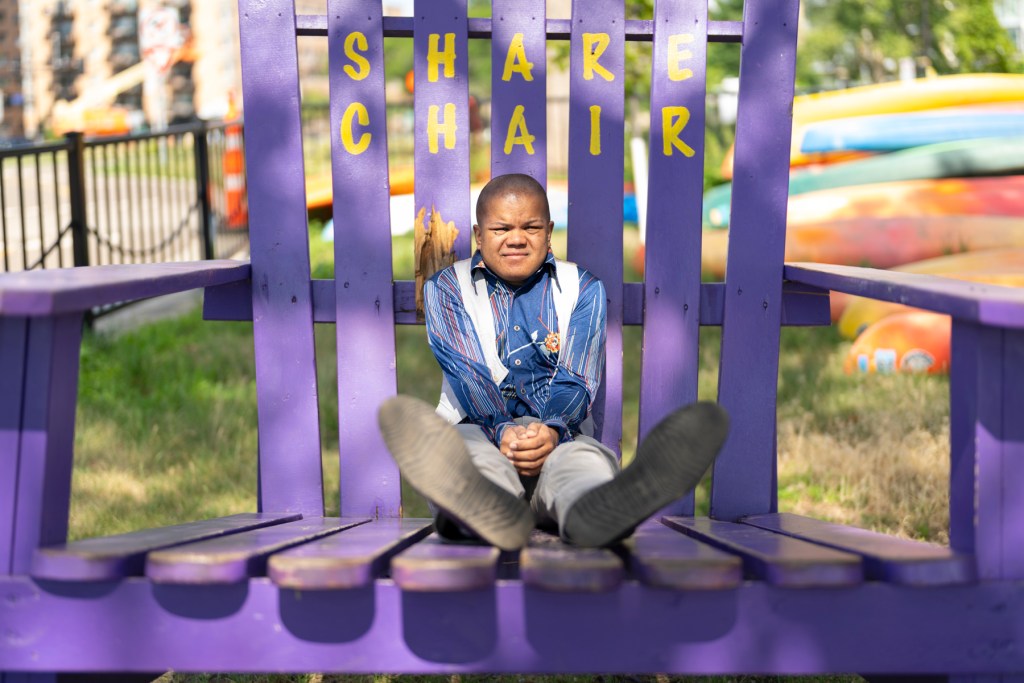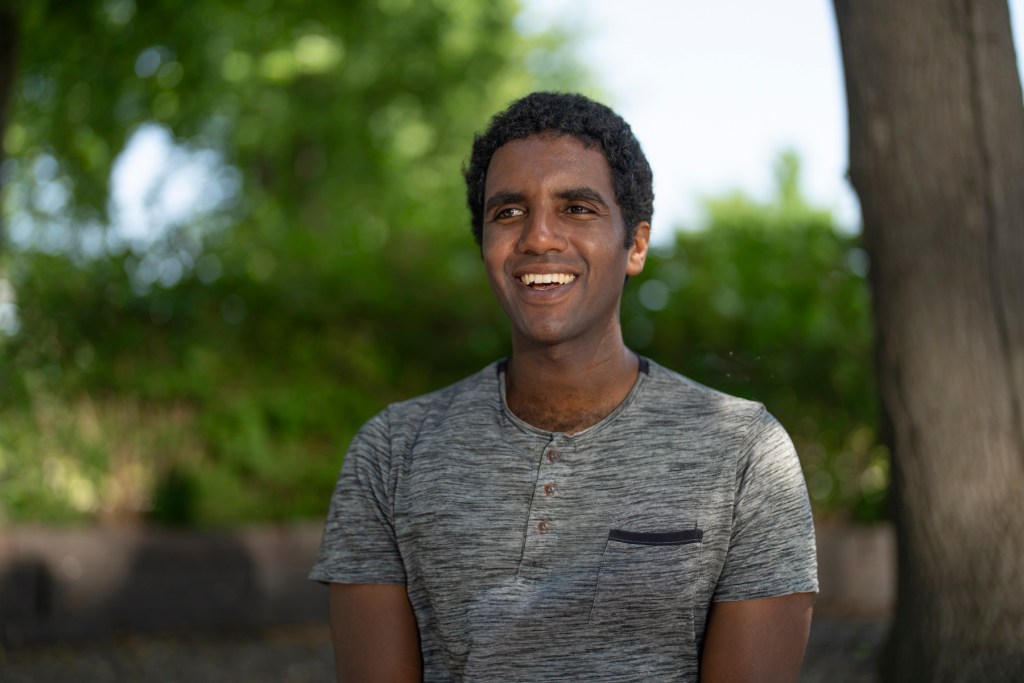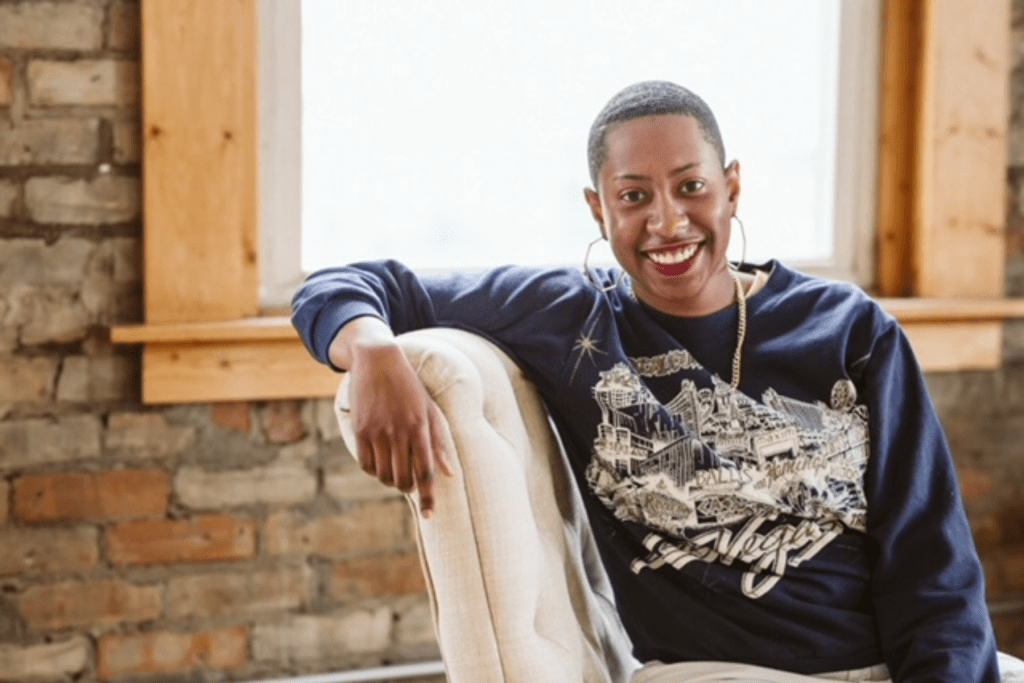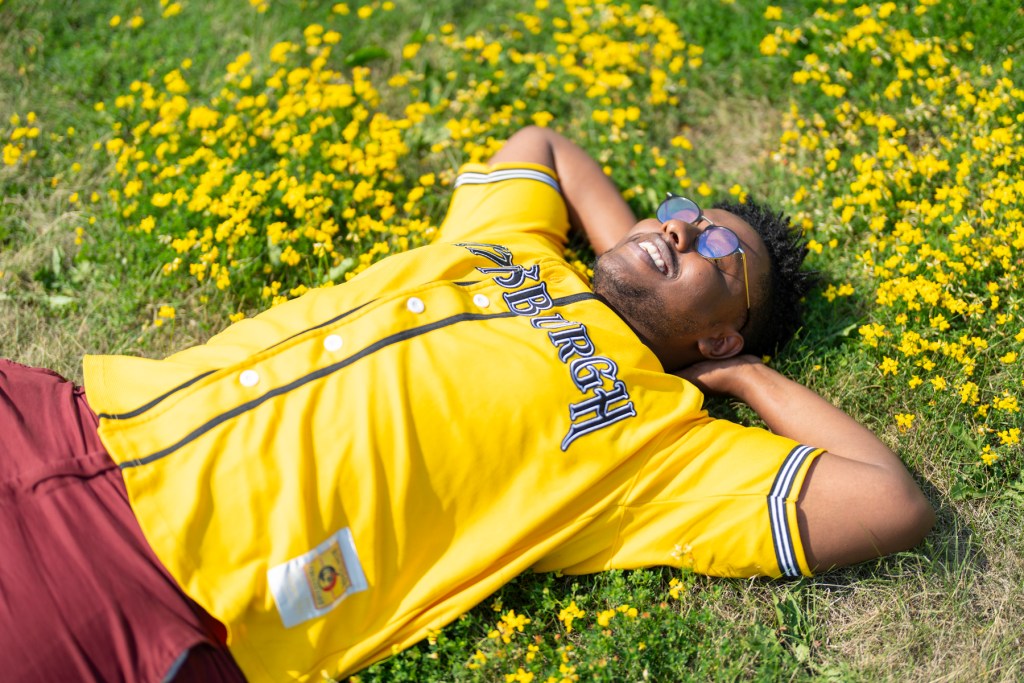Alicia Kismet Eler’s comedy journey began more than a decade ago in Chicago, during a time when she found herself unexpectedly unemployed.
Faced with uncertainty and anxiety, Eler, who goes by the stage name Alicia Kismet, turned to comedy to find laughter amid the chaos. Initially unfamiliar with the comedy scene, she started attending open mic nights, bravely attempting to make light of her job loss.
Eler later would rediscover her passion for comedy in Minneapolis. Immersed in the welcoming atmosphere of the Twin Cities comedy scene, she dedicated herself to honing her craft, sharing humorous tales of queer dating and delving into her Turkish heritage and family dynamics.
Comedy became her way to navigate difficult subjects with levity, including during a pivotal moment when a cousin inadvertently outed her to their entire Turkish family.
We were there for my cousin’s wedding, and my aunt approached my mom and was like, ‘What did you do to make Alicia gay?’ And it’s such a horrible memory, but then I made a joke about it.
ALICIA KISMET ELER
“We were there for my cousin’s wedding, and my aunt approached my mom and was like, ‘What did you do to make Alicia gay?’” Eler said. “And it’s such a horrible memory, but then I made a joke about it. I was like, ‘Whoa, if I could take that horrible memory and make it comedy, the possibilities are endless.’”
Eler, 39, was raised in the Chicago suburbs with a secular Jewish mother and a Turkish father. Inspired by her cultural roots and connection to Istanbul, Eler is currently working on her second book, a novel titled “A Tourist of Memories,” following the success of her first book, “The Selfie Generation.” The novel follows a young Turkish American screenwriter who seeks to understand her father’s departure from Turkey and embarks on a secret journey to meet someone she connects with online in Istanbul.
Eler is a visual arts critic and reporter at the Minneapolis Star Tribune. Her work has appeared in The Guardian, New York Magazine, Glamour, Harper’s Bazaar, The Markaz Review, and other publications.
The interview has been edited for length and clarity.
How do your cultural background and personal experiences shape your comedic style and material?
I decided to do a set about my dad and Turkish stuff. There are no pronouns in Turkish, and this was a setup for talking about my dad growing up. Often his stories would be very confusing, because he’d be like, “Oh, you know, the mailman, he came and dropped off a package and I never saw her again.” I’d say, “Wait, who is she?” And then he’s like, “You know, the mailman.” And I was like, “What? Are you having an affair?”
I have a lot of memories like that. I was setting up that joke and I said, “Are there any native Turkish speakers here?” and then this girl in the audience goes, “Gobble gobble” and I was like, “You are canceled” and, “That was my first heckler.”
So many Americans, white Americans particularly, think all Middle Eastern countries are the same, kind of in the way that a lot of ignorant people think Latin American countries are the same or speak the same language. So, talking about my cultural background has revealed more about people’s ignorance, but also I don’t know anyone else talking about this, and it’s been really cathartic for me to speak about these topics and grapple with some traumatic experiences.
Does representation matter in comedy? What role do you think local comedians play in bringing diverse perspectives?
Definitely. I think the more diverse voices and perspectives out there, the more comedy feels like not some old boys club, and can be more welcoming to underrepresented voices and perspectives. Maybe comedy can really transform.
The comedy scene for so long has been dominated by so many straight white men, and if you look back at the history of comedy, there’re just horrible misogynistic jokes. The perspective that an immigrant or a kid of immigrants can bring maybe helps bring more awareness.
It’s such a relief to have those voices up there representing this community rather than like, “Oh, comedy is something that only men can do, or only straight women,” you know? Gabby [ a Black queer female comedian] talks a lot about kind of crazy queer stories, and that’s super important. Comedy should reflect the world and diverse backgrounds.
Have you encountered any unique challenges or opportunities as a comedian with an immigrant family background or as a queer individual? How do you navigate those experiences?
I got started in Uproar [Comedy Club at Bryant and Lake Bowl and Theater in Minneapolis], and I felt more comfortable immediately talking about weird experiences and experiences around being from a family of immigrants, or my dad is an immigrant so, yeah. I felt safe trying that stuff out. I did feel initially scared to try out any of that material at other mics. Generally, though, people have been pretty welcoming.
I think audience members are the riskiest part of this, because a lot of comics think it’s you versus the audience. But you’re in conversation with the audience, you know? You’ve gotta connect with them. If you get up there and alienate them, if you get up there and ignore them, if you get up there and just kind of recite your jokes like a monologue, they’re gonna be like, **** that person, you know?
You’re in conversation with the audience, you know? You’ve gotta connect with them.
ALICIA KISMET ELER
So, how do you connect with a group of people? And then I’m a little anxious about this show I have on Friday because I’m the only non-cis dude on the lineup. I don’t know this venue and I’m like, “Oh, is this audience going to be cool with queer jokes?” I have a lot. Like, should I do more Turkish jokes? I think it will be more of an immigrant crowd, but I don’t know. So there’s a certain amount of reading the room and just being able to think on your feet.
What do you hope to see in Minnesota’s comedy scene moving forward?
I’ve only been back in comedy for about a year. I really love Uproar. I would love to see more sensitivity around, I don’t know, I’m just surprised by the number of men who tell homophobic jokes still, and transphobic jokes. I’d really like to see none of that anymore. It’s not funny. It’s a punch down, you know?
I’d really love to see more women of color, queer women, non-binary people out there. I’ve done shows with or been in mics with queer women who come around, do one or two [shows], and then it’s like, bye, and I’m like, please stay.” I’d really love to see more women, nonbinary, queer people of color, and more immigrant narratives.
There’s a place for observational comedy and political comedy. I like those too, but for me, it’s the stories that really show people’s truths and connect with audiences. I’d love to see more jokes from the heart. Family stories. Stuff that really sticks with audiences.









